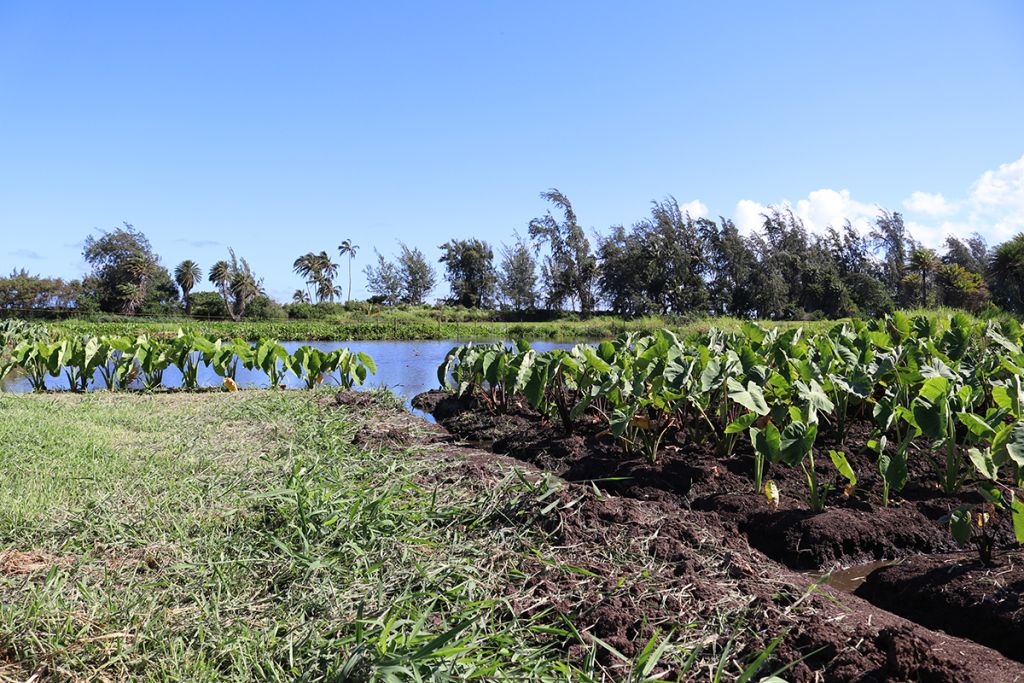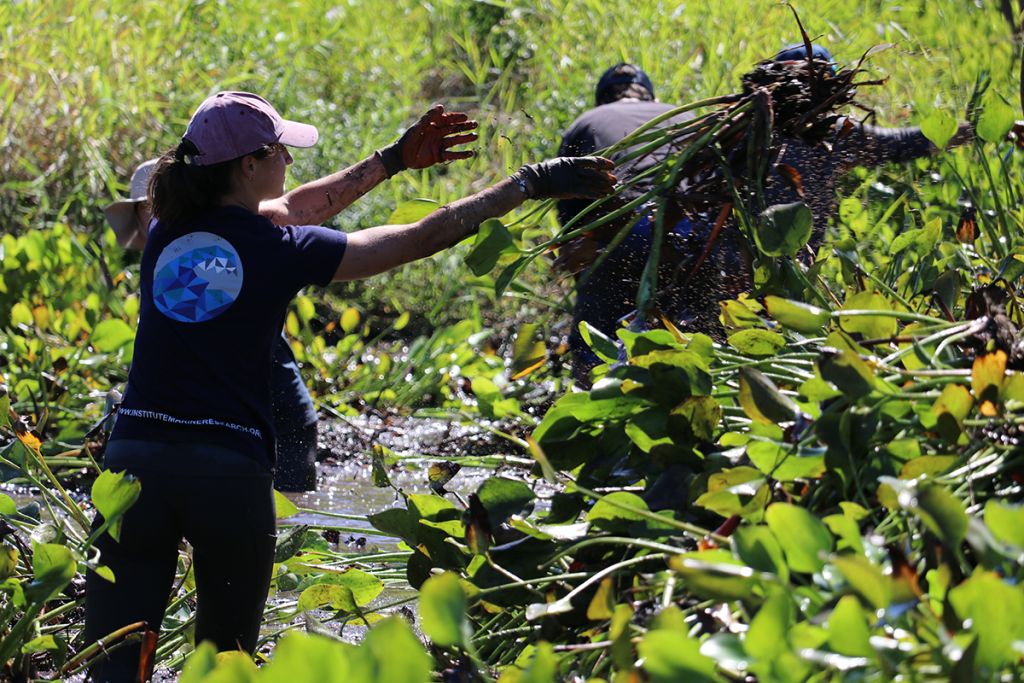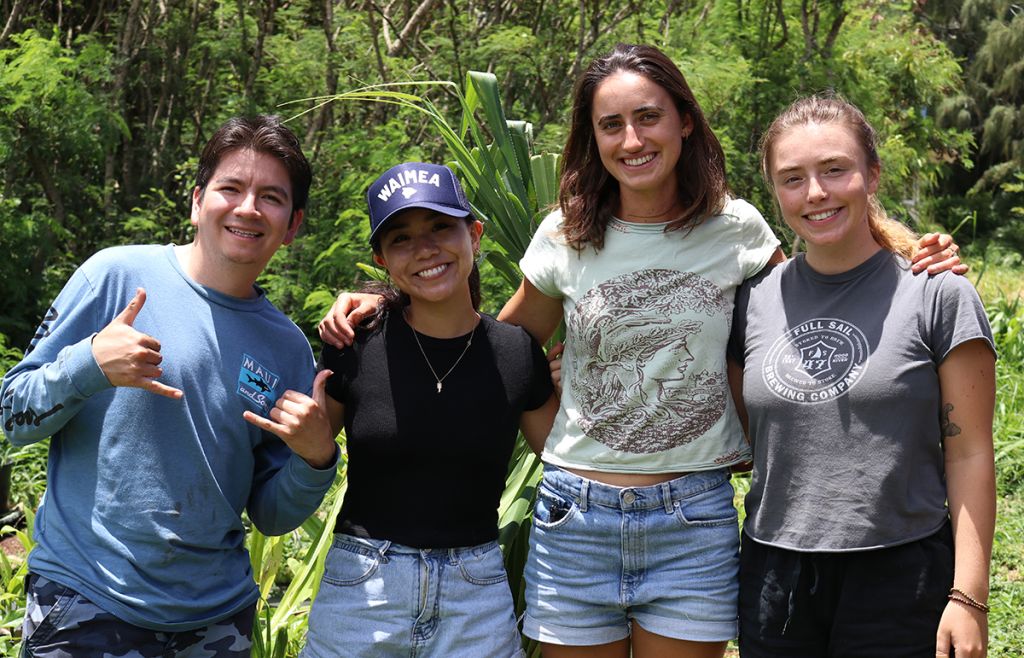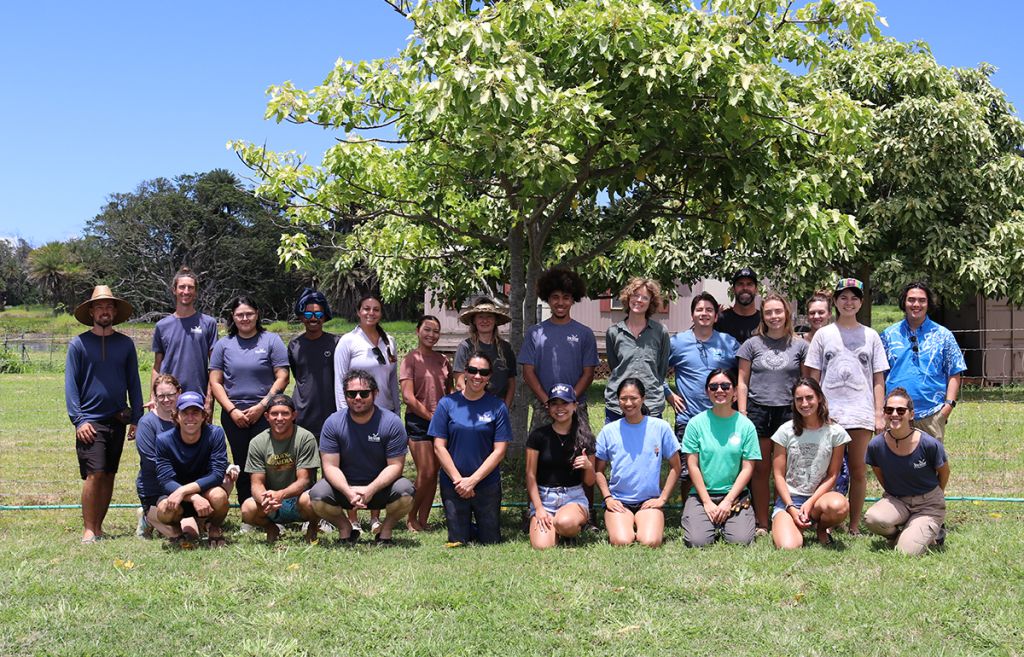SURFers and Grad Scholars learn to work with the community
July 15, 2024

On a Saturday morning in late June, the 2024 SURF cohort joined with PI-CASC Graduate Scholars, other students, and community members on Oʻahu’s north shore for a day of activity, thought, and discussion at the North Shore Community Land Trusts’ Waialeʻe Lake Pono site.
Each year for the Summer Undergraduate Research Fellowship (SURF), the Pacific Islands Climate Adaptation Science Center (PI-CASC) has hosted a professional development workshop centered around conducting research in community settings, guided by the Kūlana Noiʻi. The Kūlana Noiʻi explores eight aspects of achieving a healthy and reciprocal community-research partnership by building and nurturing pilina (relationships) and then respectfully continuing those ongoing relationships. By introducing these concepts to students early in their careers, we hope to create a foundation of the ideas surrounding good research practices that they can apply and continue to build upon through their future careers.
This year, in conjunction with Hawaiʻi Sea Grant, PI-CASC hosted an assortment of 19 fellows and interns from different undergraduate and graduate student programs at the workshop. The morning started with giving back to the community by contributing to the monthly Waialeʻe community work day, joining nearly 90 community members in helping to weed and maintain the growing loʻi (taro patch), removing floating hyacinth to expand the viable space for more taro planting, and raking and clearing dead, invasive grasses.

“Participating in the community workday is always fun,” said Dr. Rachel Lentz, PI-CASC undergraduate research coordinator. “The students really enjoy getting muddy and physical. And everyone feels a real sense of satisfaction seeing how much is achieved by so many hands working together.”
An unusual addition to the day was a presentation by Dr. Maile Arvin, a professor of history at the University of Utah, who has been investigating the history of several boys’ and girls’ homes around Oʻahu, including the Waialeʻe Training School for Boys. Run and maintained through both the monarchy and territorial eras, these homes have a dubious history as detention centers for Hawaiian and other minority youths. Dr. Arvin shared some of the rather grim details her studies have uncovered, a project designed to raise awareness in today’s communities about the way these homes were used, who was affected, and the lasting legacy of such programs.
The Kūlana Noiʻi portion of the day followed, with just the PI-CASC and Hawaiʻi Sea Grant students and facilitators, led by Katy Hintzen, PI-CASC climate adaptation services liaison. After her presentation on the background, purpose, and suggested applications of the Kūlana Noiʻi, students broke into smaller groups to discuss the standards, and then run through anonymized, but real, scenarios where those standards could apply. Students discussed what went wrong in each scenario, what might have been done to avoid the problem in the first place, or how the situation could be mitigated after the fact. There was a strong message in the fact that nearly every scenario discussed circled back to the necessity of better communication between researchers and the community.
“I see the Kūlana Noiʻi experience as offering new lessons each time,” shared Graduate Scholar Leigh Engel. “How can we study place and people without holding their perspectives? We must understand our own biases and what forms them; we must question where we stand and how we got there. Otherwise, we are limited in our research, our observations, and our ability to kilo (observe/examine).”



